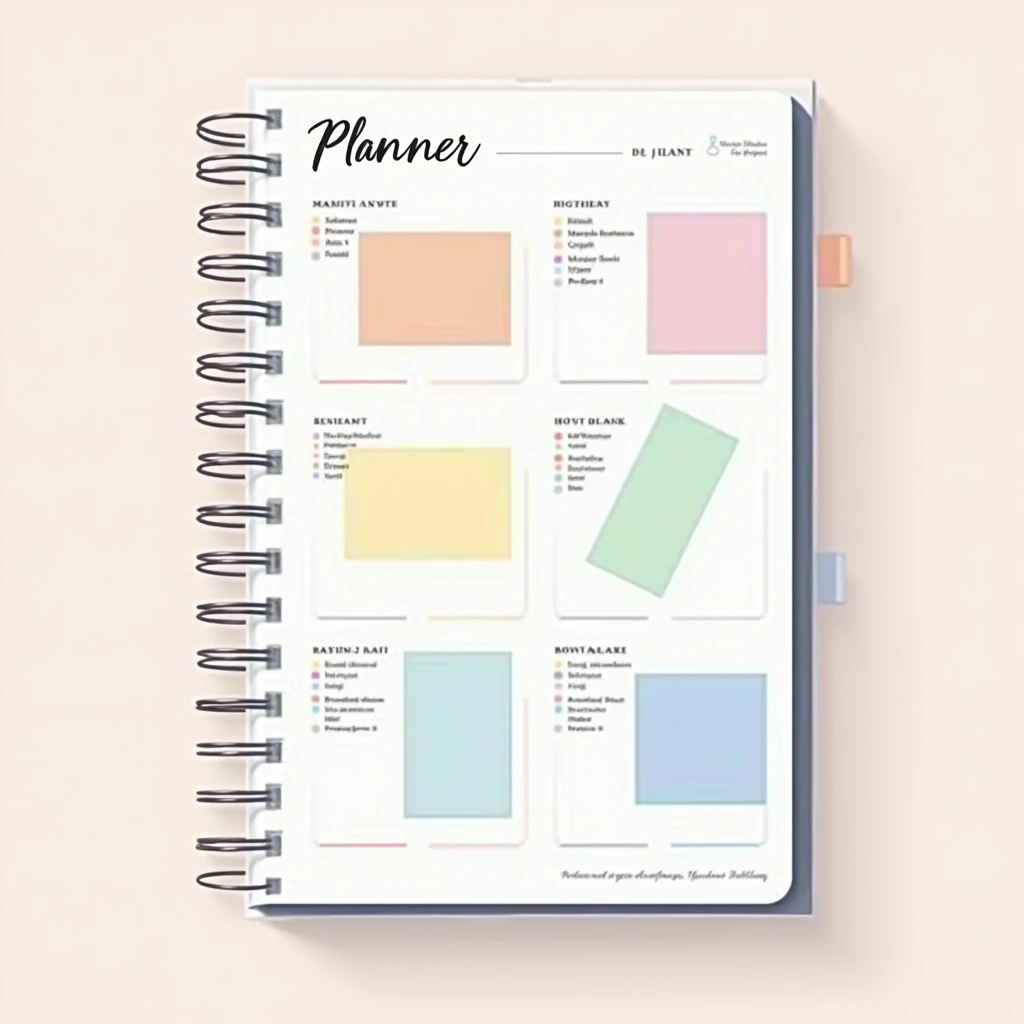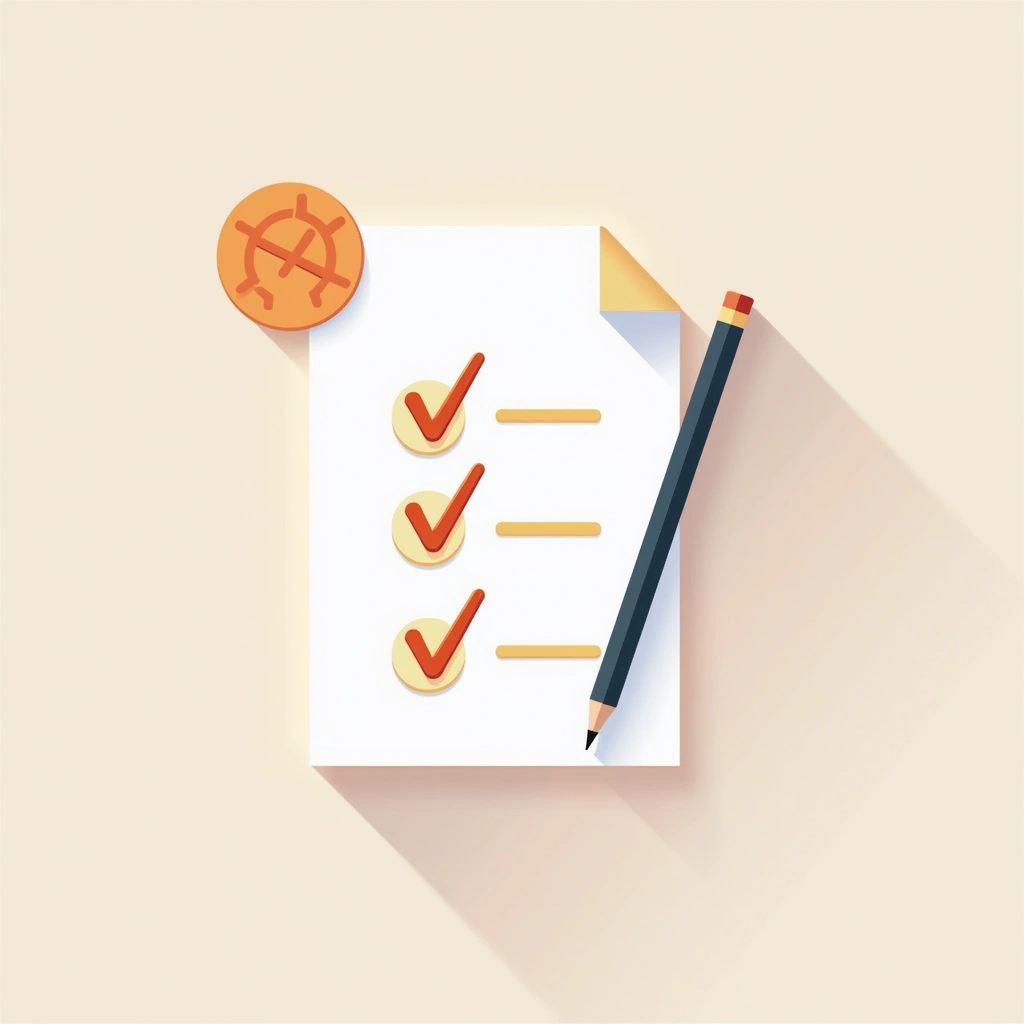
Designate Study Zone
Establish a quiet, well-lit, and organized study area free from distractions. A dedicated study space helps create a conducive environment for focused learning and signals to your brain it's time to concentrate.



Establish Time Blocks
Create a consistent daily schedule for studying that aligns with your energy levels and other commitments. Regular study blocks turn learning into a habit rather than a sporadic activity, improving retention and reducing procrastination.



Chunk Large Assignments
Divide complex projects or extensive material into smaller, manageable segments that can be tackled one at a time. Breaking down large tasks reduces overwhelm, provides clear milestones, and creates a sense of progress as each segment is completed.



Focus On One Task
Eliminate multitasking and concentrate entirely on a single subject or assignment during each study session. Monotasking significantly improves comprehension and efficiency, as your brain can devote all its resources to one learning objective.



Capture Key Concepts
Develop a personalized note-taking system that helps you distill and organize important information during lectures or while reading. Effective notes serve as personalized study guides that highlight crucial concepts and save time during review sessions.



Collaborate With Peers
Form or join a small group of students studying the same material to discuss concepts, quiz each other, and share different perspectives. Study groups provide accountability, expose knowledge gaps, and allow you to learn by teaching others.



Seek Immediate Clarification
Ask questions as soon as confusion arises rather than letting uncertainty accumulate. Addressing gaps in understanding immediately prevents compounding confusion and builds a solid foundation for more advanced concepts.



Practice Active Recall
Test yourself by trying to recall information from memory rather than simply re-reading material. Active recall strengthens neural pathways associated with the information, making it more accessible during exams and real-world application.



Distribute Learning Sessions
Spread out study sessions over time rather than cramming all at once before deadlines. Distributed practice allows your brain to consolidate information between sessions, leading to stronger long-term memory and deeper understanding.



Simulate Exam Conditions
Regularly test yourself under conditions similar to actual exams, using past papers or creating your own questions. Practice tests reveal knowledge gaps, build exam-taking stamina, and reduce test anxiety through familiarity with the process.



Celebrate Small Wins
Create a system of meaningful rewards for completing study goals or sessions to maintain motivation. Planned rewards provide something to look forward to, activate your brain's pleasure centers, and create positive associations with studying.



Prioritize Quality Sleep
Ensure you get 7-9 hours of quality sleep, especially before exams or important learning days. Quality sleep is essential for memory consolidation, cognitive function, and maintaining the focus needed for effective learning.



Create Master Task List
Keep a comprehensive list of all assignments, readings, and projects with their deadlines in one centralized location. A master list prevents important tasks from falling through the cracks and provides a bird's-eye view of your workload for better planning.



Plan Weekly Schedule
At the start of each week, map out when you'll work on specific assignments or subjects, accounting for deadlines and difficulty levels. A weekly plan eliminates daily decision fatigue about what to study and ensures balanced attention across all subjects.



Track Learning Progress
Regularly assess your understanding and advancement through learning materials using self-tests, progress trackers, or reflection journals. Monitoring progress helps identify areas needing additional attention and provides motivation through visible growth.



Refine Completed Work
Review and revise assignments before submission and continue improving them even after receiving grades if possible. The revision process deepens understanding through critical reflection and helps develop higher standards for your work.



Request Timely Assistance
Promptly reach out to instructors, tutors, or knowledgeable peers when struggling with concepts rather than remaining stuck. Seeking help addresses knowledge gaps immediately and often provides valuable alternative explanations that make complex ideas click.



Embrace Learning Challenges
Maintain effort and focus when encountering difficult concepts rather than avoiding them or giving up. Perseverance through challenging material builds intellectual resilience and often leads to breakthrough moments of understanding.



Rotate When Blocked
Move to a different subject or assignment when you hit a significant mental block instead of forcing continued focus. Strategic task-switching prevents diminishing returns from frustrated effort and allows your subconscious to work on problems in the background.



Commit To Daily Practice
Dedicate at least 10-15 minutes every day to practicing or reviewing a subject, even on busy days. Daily practice, even in small amounts, maintains momentum and triggers the spacing effect for better long-term retention than occasional marathon sessions.



Rephrase Key Concepts
Express ideas and concepts in your own language rather than memorizing text verbatim. Translating information into personal language forces deeper processing and reveals true comprehension levels while creating stronger memory connections.



Maintain High Standards
Approach each assignment with care and attention to detail, striving for quality rather than mere completion. Taking pride in your work builds professional habits, enhances learning outcomes, and results in materials you can confidently reference in the future.



Honor All Deadlines
Submit every assignment by its due date, treating deadlines as non-negotiable commitments. Consistent on-time completion builds trust with instructors, prevents work from accumulating, and eliminates the stress of playing catch-up.



Audit Missing Assignments
Regularly review course requirements to identify any missed or incomplete assignments before they impact your grade. Proactively tracking completion status prevents unpleasant surprises and allows for timely intervention when gaps are discovered.


Align With Learning Style
Identify whether you learn best through visual, auditory, kinesthetic, or other methods, and adapt your study techniques accordingly. Matching study approaches to your natural learning style increases information retention and makes studying more engaging and effective.



Define Session Objectives
Begin each study session by clearly defining what you intend to accomplish by the end. Specific session goals provide focus, create momentum through achievable milestones, and give a clear endpoint to work toward.



Show Up Consistently
Attend all classes, study sessions, and academic appointments without exception whenever possible. Consistent attendance ensures you receive all information firsthand, participate in valuable discussions, and demonstrate commitment to your education.



Cultivate Intrinsic Motivation
Connect your studies to personal growth and fulfillment rather than external pressures or rewards. Intrinsic motivation based on genuine interest and purpose creates sustained engagement and resilience through challenging academic periods.


Maintain Physical Wellbeing
Prioritize adequate sleep, nutrition, exercise, and stress management as foundational to cognitive function. Physical wellbeing directly impacts focus, memory, and learning capacity, making health maintenance an essential study habit.



Eliminate Study Interruptions
Proactively identify and remove potential distractions from your study environment, including digital notifications, noise, and visual clutter. Minimizing interruptions preserves cognitive resources and allows for deeper focus and more efficient learning.

